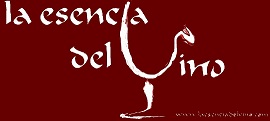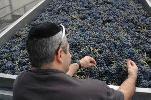Pure wines, Kosher wine
To be kosher, as being ecologic, open doors in export markets, and that makes, brands have begun to emerge from all major Spanish regions supported by this certification. From Yecla Valdeorras to and from the Priorat to Jerez, the map of ancient Sefarad by Dotted appears increasingly significant number of wineries committed to gain a place in the kosher wine market.
 The wine is a wine kosher ritually suitable for practitioners of the Jewish religion, could be any wine, but his fitness is determined by a certificate granted by certain agencies, about three hundred worldwide, ensuring that its development has followed the rules in the sacred books.
The wine is a wine kosher ritually suitable for practitioners of the Jewish religion, could be any wine, but his fitness is determined by a certificate granted by certain agencies, about three hundred worldwide, ensuring that its development has followed the rules in the sacred books.
Although the wine was and continues to be used in and for very different types of religious cults, their position and status in Jewish law only requires treatment and realization surrounded by tight restrictions, even when used for other purposes sanctification Shabbat or consumption in other Jewish holidays.
There are, however, two categories: if the wine has been pasteurized qualifies as Mevushal and can be manipulated by the hands of gentiles, but falls within a category of wine product. When only Jews have participated in its elaboration is called Passover, and is suitable to be opened at Easter, the most important Jewish religious celebrations. and it is in this section that fall wines that might be interesting.
The comprehensive protocol based kosher wine production in the Mosaic law, beginning with the vineyard, it must have at least four years and grow strains alone. Every seventh year (Sabbath year), the soil must be regenerated, even if the vineyard owner changes in this period can bypass this requirement. It should make the last two months organic manure before harvest.
The grapes must be carefully collected and shipped, it should arrive whole, healthy and ripe. Only a Jew can touch and press to turn it into Grape wine must and machinery or objects that come in contact in winemaking, have been previously cleaned under the supervision of a rabbi.
During vinification, to be made in stainless steel fermentation tanks instead of oak barrels, is prohibited from using selected yeasts, enzymes and bacteria added and can only be clarified with bentonite clay mineral, as other animal products are impure (gelatin and casein are prohibited).
Only Jews respect the Sabbath and law abiding are authorized for wine and physically and visually get in contact with the wine. Not even a winemaker who belongs to the cellar and Jew can not access, it has a barrel to make its monitoring and informs the rabbi of how to proceed.
Once bottled the wine (only allowed to use new bottles), and only if the rabbi believes that its development has followed all the rules, the stamp Kosher. The 1% of the profits of the wine must be delivered to charitable causes.
But that does not stop the process of kosher wine, wine should be opened and served by a Jew, because if not, lose their sacred status, but can be consumed by all that we can watch the careful selection and preparation.
Many wineries in Spain trying to find space for their exports in the kosher wine market appeal, which followed the precepts of Judaism. Few, however, get settle. The first Spanish winery spent part of his preparation was kosher wine Bodegas Capçanes (DO Montsant), but is now also produced in Navarra, Jerez, Utiel-Requena, Penedès, Valdeorras, Bank of Júcar and Madrid.







